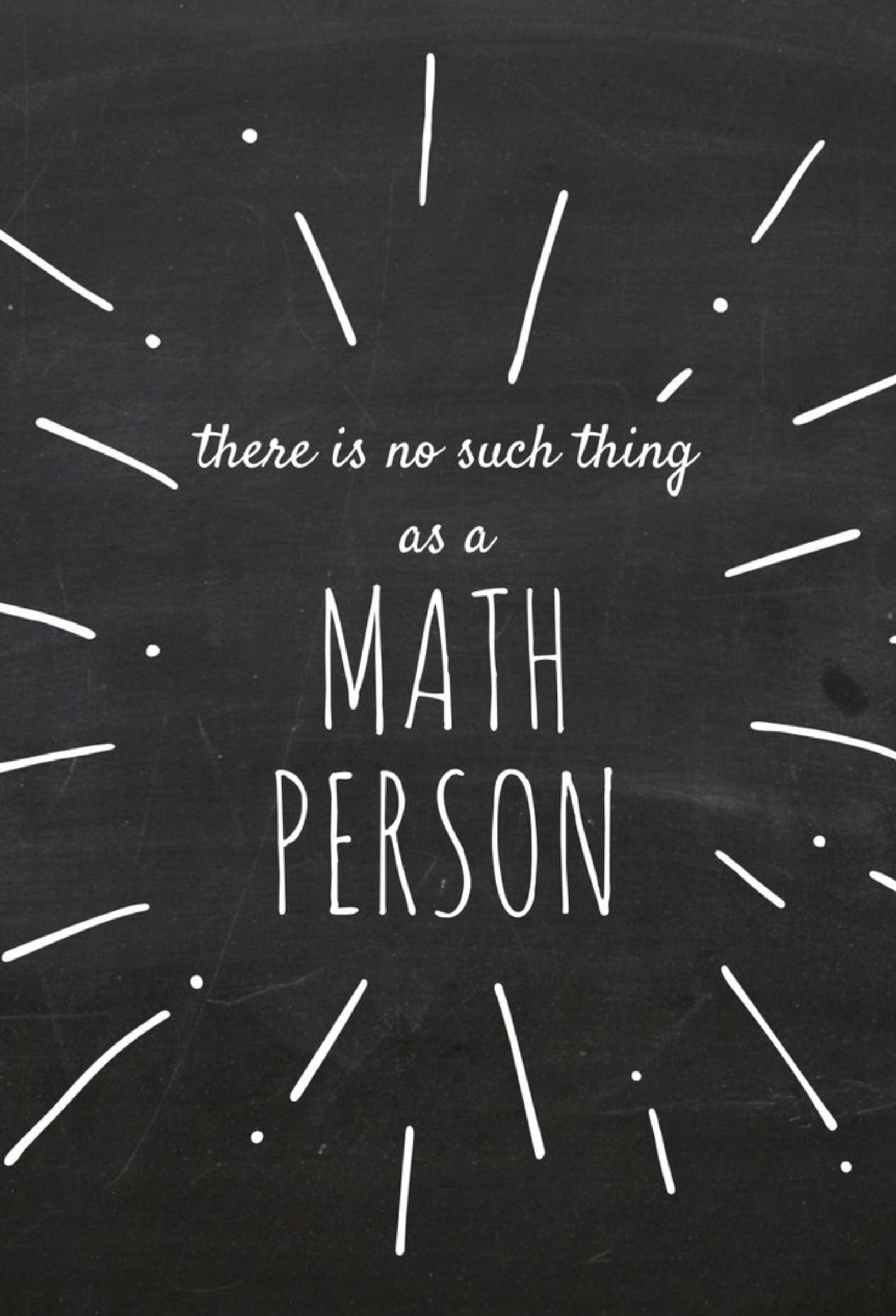Mathematical Mindsets
Mindset Boosting!

Mathematical Mindsets
Mindset Boosting!
Did you enjoy Maths at school? Was it OK to struggle?
Everyone holds ideas about their own potential. Some people believe that their intelligence is more or less fixed and in math – that you can do math or you can’t. About 40% of students have these damaging “fixed mindset” ideas. Another 40% have a “growth mindset” – they believe that they can learn anything and that their intelligence can grow. The other 20% waver between the two mindsets.
People’s incorrect beliefs about and negative attitudes towards Mathematics have had a devastating impact on the teaching and learning of Mathematics in our culture.
Intense negative emotions around Mathematics are not uncommon and are recognised as ‘maths trauma’ or ‘maths anxiety’.
Mathematics, more than any other subject, has the power to crush students’ spirits, and many adults do not move on from mathematics experiences in school if they are negative (Boaler, 2016, p.x).
Successful math users have an approach to math as well as mathematical understanding that sets them apart from less successful users. They approach math with the desire to understand it and to think about it, and with the confidence that they can make sense of it. Successful math users search for patterns and relationships and think about connections. They approach math with a mathematical mindset, knowing that math is a subject of growth and that their role is to learn and think about new ideas. We need to instill this mathematical mindset in students from their first experiences of math.
Research has shown definitively the importance of a growth mindset—the belief that intelligence grows and that the more you learn, the more mathematical pathways you develop. But to erase math failure, we need students to have growth beliefs about themselves and accompany them with growth beliefs about the nature of mathematics and their role in relation to it.
Children need to see math as a conceptual, growth subject that they should think about and make sense of.
Watch expert Jo Boaler talk about the importance of having a positive mathematical mindset, and how as adults our own schooling experiences can affect the way our children learn Maths.
Parents’ beliefs and attitudes
Research shows that when parents experience maths anxiety, they often hold poor attitudes about mathematics, considering it of little use and expressing low motivation to succeed in math. This in turn demotivates their children, increasing maths anxiety and reluctance to embrace challenge. However, if parents’ maths fears can be reduced, this will lead to more positive homework experiences, and most likely result in improved maths achievement and diminished maths anxiety for their children.
There are strong beliefs that you have to be fast at maths to be good at it, yet mathematicians think carefully and deeply about mathematics.
Laurent Schwartz, a prize-winning mathematician, was one of the slowest thinkers
in his maths class and says he felt unintelligent because his school valued fast thinkers.
Teaching that values depth of thinking—rather than speed in mathematics—engages more students, in particular girls, and enhances brain connections (Seeley, 2009).
What beliefs does this knowledge challenge?
Mirjana